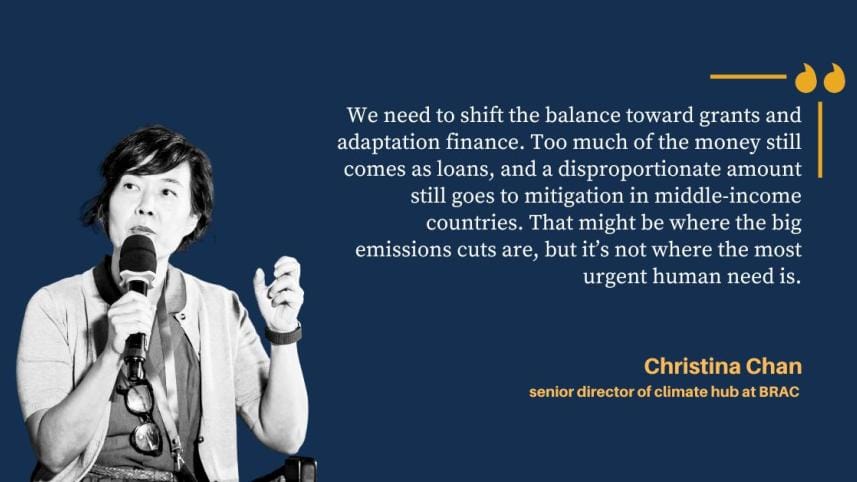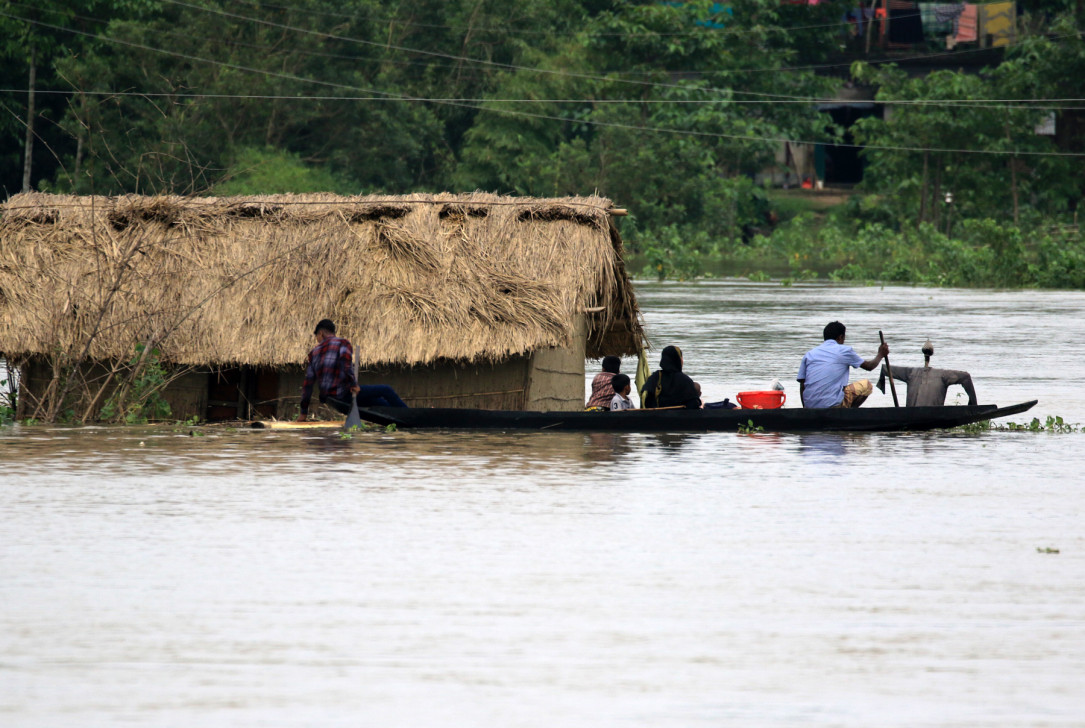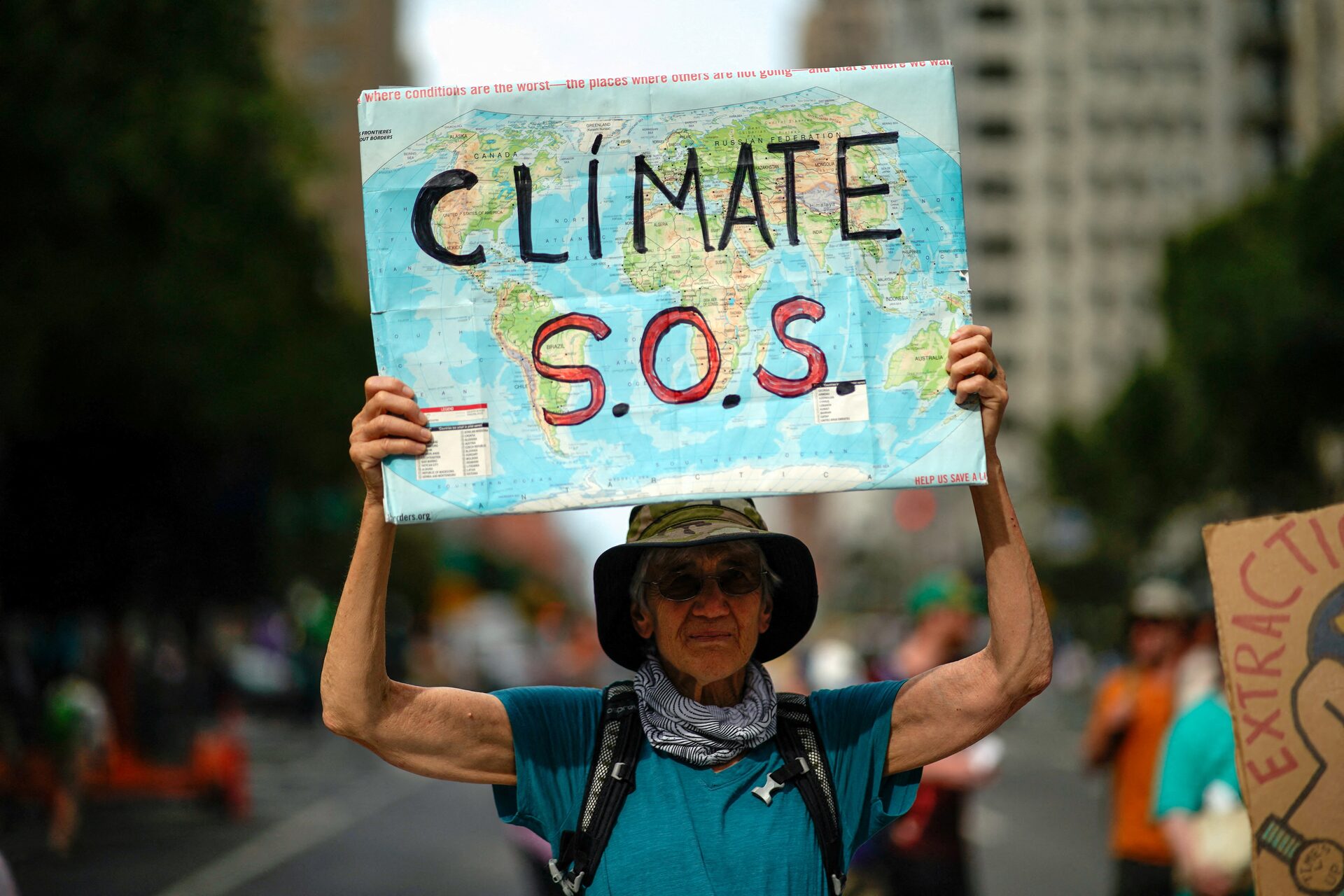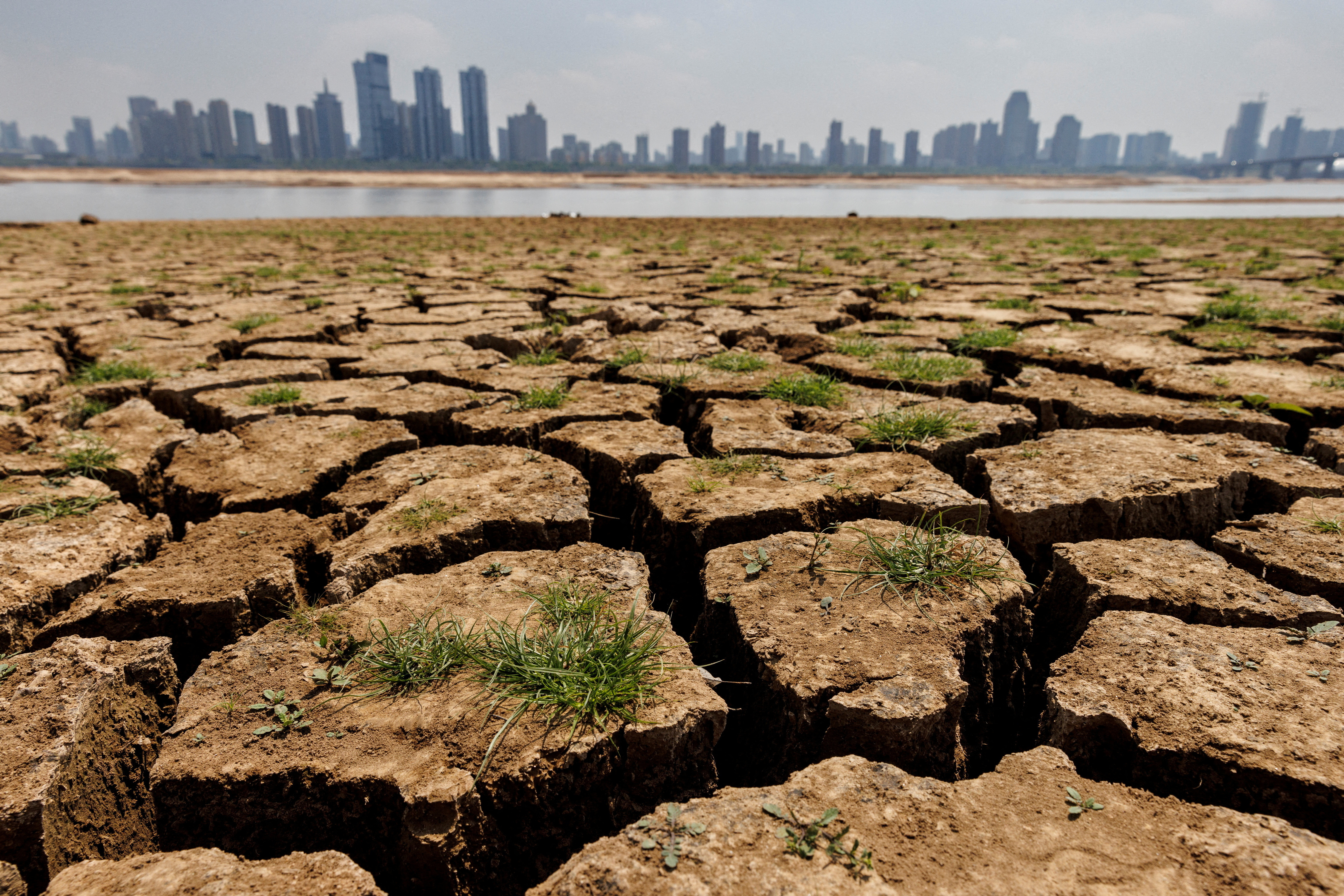‘Climate finance needs to be demand-driven, not designed in donor capitals’

Christina Chan, senior director of climate hub at BRAC and former managing director and senior advisor for adaptation and resilience at the US Office of the Special Presidential Envoy for Climate Change, talks to Sifat Afrin Shams of The Daily Star about climate finance, adaptation projects and resilience at the grassroots.
Having worked both within and outside the US government, what, according to you, are the most tangible and immediate effects of US withdrawal from the Paris Agreement on the Global South, including Bangladesh?
Having worked on climate under both President Obama and President Biden, I saw first-hand how damaging the previous (2017) US withdrawal from the Paris Agreement was, especially for countries like Bangladesh. Under Obama, we worked hard to build trust with developing countries to land the Paris Agreement. When the Trump administration pulled out, it sent a deeply troubling message: that a top emitter was walking away from a crisis it helped cause. That fractured momentum and gave cover for other big emitters to delay or weaken their commitments. The impact on climate finance was immediate.
A second (2025) US withdrawal is even more damaging. It sends a disastrous signal to the rest of the world: that the US is not serious about cutting emissions or living up to its obligations. Even before withdrawal would take effect, developing countries are already feeling the cut-off of critical assistance, including for climate change adaptation.
What are the biggest barriers to getting climate finance to the local level, where it is most needed, and how can local organisations and NGOs help to bridge that gap?
Money often doesn't make it to the communities that need it most. And from my experience, there are a few major reasons why.
First, the funding systems themselves are incredibly complex. Many of the big international climate funds—like the Green Climate Fund—have long, technical application processes that require very specific institutional capacity. That creates a huge barrier for organisations that are doing real, on-the-ground work but don't have teams of grant writers or compliance officers. Moreover, the money often flows through multiple layers—big development banks, international NGOs, national governments—which can dilute the funding or delay its arrival. Some donors are still hesitant to fund local actors directly because they see them as risky or too small to manage large grants.
Second, a lot of climate finance still comes with strings attached—projects are designed from the top down, based on what donors think will work, rather than what communities actually need. And the funding cycles are often too short. Adaptation isn't a one-year project—it's a long-term process that requires trust, flexibility, and ongoing support.
Organisations like BRAC, with deep roots in the communities it serves and an understanding of both the development context and the language of donors, can act as a bridge, helping local actors build the capacity they need to access funds, while also advocating upstream to donors to simplify their processes and shift more control to the local level.
How does BRAC's approach to climate action address the disproportionate impact on women and girls, and what more needs to be done?
Women are at the centre of our approach to climate change adaptation. Women play a critical role in the agricultural workforce and they are disproportionately vulnerable to the impacts of climate change. They are also agents of change. Among male and female farmers, I have met with since joining BRAC a year ago, women farmers expressed being more likely to trust scientific advice, adopt new crops and collaborate. Evidence also suggests that when women have equal access to information and resources, "their likelihood of adopting improved agricultural practices can match or exceed that of men."
Through our work on climate change adaptation, we are promoting collaborative approaches between men and women to address inequalities and exclusion and to create more respectful and inclusive gender relations. Beyond selecting women as participants, we seek to examine and confront structures, processes and relationships of power and intersectionality that contribute to their climate vulnerability.
Could you share some examples of what you consider to be successful frugal innovations in climate adaptation?
Climate change is reshaping the world in profound ways—take coral reefs, for example. Many can no longer survive rising temperatures, as pointed out by former Maldivian President Mohammad Nasheed in his keynote speech at the Frugal Innovation Forum (FIF) last month. In places like Bangladesh, increasing salinity is changing what crops can be grown where. This means we can't just keep doing things the old way. We have to rethink what we grow, where we grow it, and how we grow it—and that calls for innovation.
Innovation, however, is not necessarily about high-tech or expensive solutions. In fact, as underscored at the FIF, the most effective climate adaptation often comes from communities themselves, who know their environment intimately. When communities are in the driver's seat, co-designing solutions with development organisations or researchers, what emerges is often frugal innovation—smart, practical approaches that carefully use limited resources and money, yet have a big impact at scale.
Several examples were highlighted at the FIF last month. One is the promotion of sunflowers as a salt-tolerant crop in coastal Bangladesh. Sunflowers can thrive in saline soils where traditional crops struggle, providing farmers with a viable alternative that doesn't require expensive inputs. Another example is the use of simple solar-powered water pumps that provide reliable irrigation without costly fuel, helping farmers adapt to unpredictable rainfall patterns.
Looking ahead, what is your greatest hope for the future trajectory of climate resilience in the Global South?
My hope for climate resilience in the Global South is rooted in the urgent need to make adaptation a top global priority, especially for the communities facing the most severe climate risks.
We need to dramatically scale up investments in adaptation to protect lives, livelihoods, and development progress. We must embrace transformative adaptation, which goes beyond simply coping with climate impacts to fundamentally reshaping systems and structures that create vulnerability in the first place. This means addressing underlying social, economic, and political inequalities and building resilience in ways that foster equity, justice, and long-term sustainability.
Central to this approach is ensuring that adaptation efforts are inclusive and equitable. That means centring the voices of women, indigenous peoples, and marginalised communities to ensure the benefits reach those who are often left behind.
Ultimately, adaptation must be proactive and integrated, driven by reliable data and designed with, not for, local communities.
How can the international community ensure that climate finance truly serves the principles of equity and responsibility?
The question is about more money, as well as how the money flows, who it reaches, and who gets to shape the decisions.
We must centre the needs of the communities most affected by climate change—those who contributed the least to the problem. That includes Small Island Developing States, Least Developed Countries, and places like Bangladesh that are on the frontlines. Climate finance needs to be demand-driven, not designed in donor capitals. Too often, funding is built around what global institutions think is bankable or scalable, rather than what local communities actually need to build resilience.
We need to shift the balance toward grants and adaptation finance. Too much of the money still comes as loans, and a disproportionate amount still goes to mitigation in middle-income countries. That might be where the big emissions cuts are, but it's not where the most urgent human need is.
I have heard time and again from partners in the Global South: the systems for accessing climate finance are too slow, too bureaucratic, and too skewed in favour of big institutions. If we want to make finance more equitable, we have to reform access. That means streamlining processes, rethinking how we assess risk, and building the capacity of local actors.
And finally, accountability matters. We need transparency around where the money goes, who benefits, and whether it's reaching marginalised groups and advancing gender equity. That means involving communities in governance, building stronger local feedback loops, and holding both donors and recipients to shared goals.
Follow The Daily Star Opinion on Facebook for the latest opinions, commentaries and analyses by experts and professionals. To contribute your article or letter to The Daily Star Opinion, see our guidelines for submission.





 For all latest news, follow The Daily Star's Google News channel.
For all latest news, follow The Daily Star's Google News channel. 


Comments